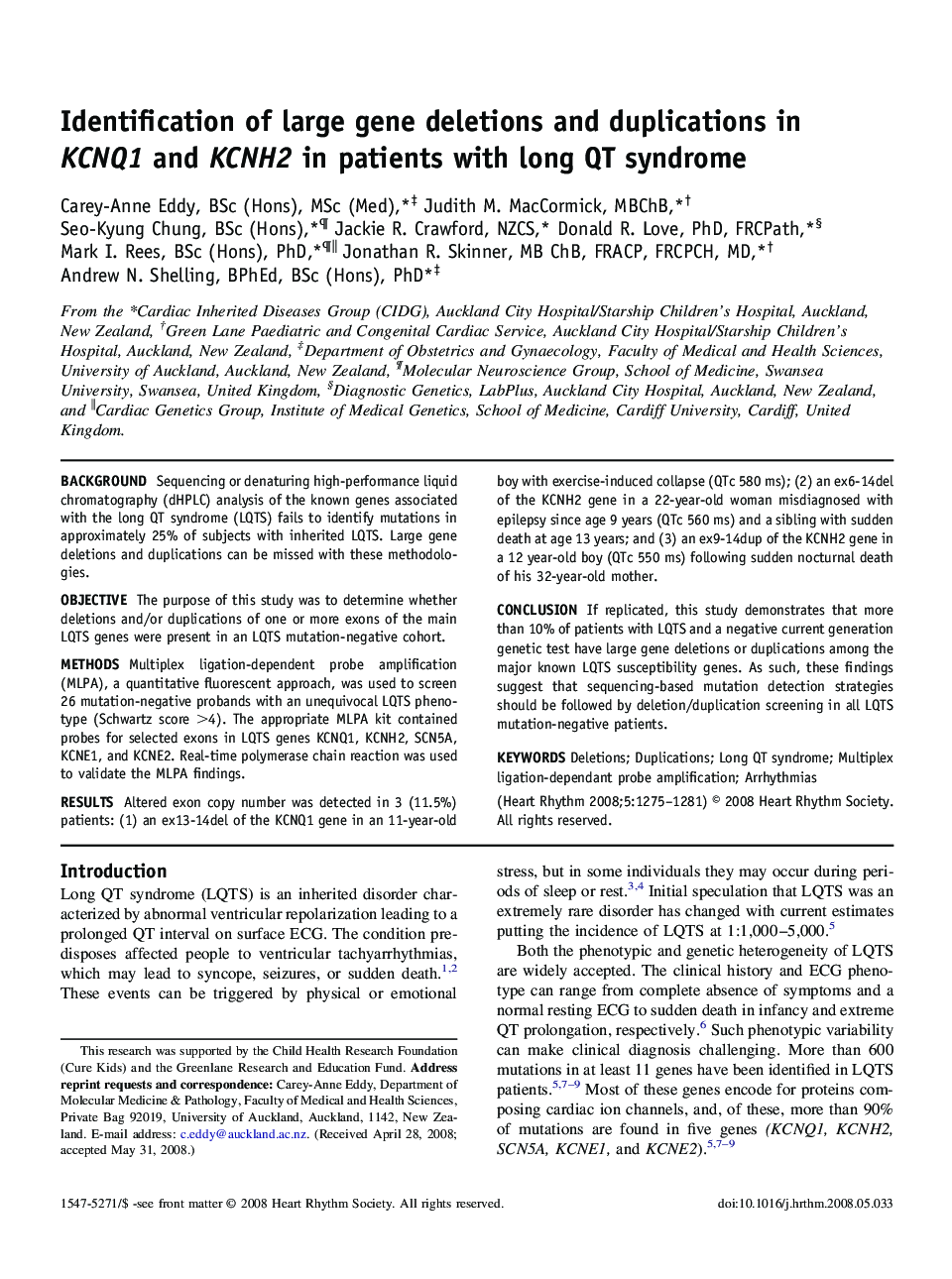| کد مقاله | کد نشریه | سال انتشار | مقاله انگلیسی | نسخه تمام متن |
|---|---|---|---|---|
| 2924209 | 1175898 | 2008 | 7 صفحه PDF | دانلود رایگان |

BackgroundSequencing or denaturing high-performance liquid chromatography (dHPLC) analysis of the known genes associated with the long QT syndrome (LQTS) fails to identify mutations in approximately 25% of subjects with inherited LQTS. Large gene deletions and duplications can be missed with these methodologies.ObjectiveThe purpose of this study was to determine whether deletions and/or duplications of one or more exons of the main LQTS genes were present in an LQTS mutation-negative cohort.MethodsMultiplex ligation-dependent probe amplification (MLPA), a quantitative fluorescent approach, was used to screen 26 mutation-negative probands with an unequivocal LQTS phenotype (Schwartz score >4). The appropriate MLPA kit contained probes for selected exons in LQTS genes KCNQ1, KCNH2, SCN5A, KCNE1, and KCNE2. Real-time polymerase chain reaction was used to validate the MLPA findings.ResultsAltered exon copy number was detected in 3 (11.5%) patients: (1) an ex13-14del of the KCNQ1 gene in an 11-year-old boy with exercise-induced collapse (QTc 580 ms); (2) an ex6-14del of the KCNH2 gene in a 22-year-old woman misdiagnosed with epilepsy since age 9 years (QTc 560 ms) and a sibling with sudden death at age 13 years; and (3) an ex9-14dup of the KCNH2 gene in a 12 year-old boy (QTc 550 ms) following sudden nocturnal death of his 32-year-old mother.ConclusionIf replicated, this study demonstrates that more than 10% of patients with LQTS and a negative current generation genetic test have large gene deletions or duplications among the major known LQTS susceptibility genes. As such, these findings suggest that sequencing-based mutation detection strategies should be followed by deletion/duplication screening in all LQTS mutation-negative patients.
Journal: Heart Rhythm - Volume 5, Issue 9, September 2008, Pages 1275–1281